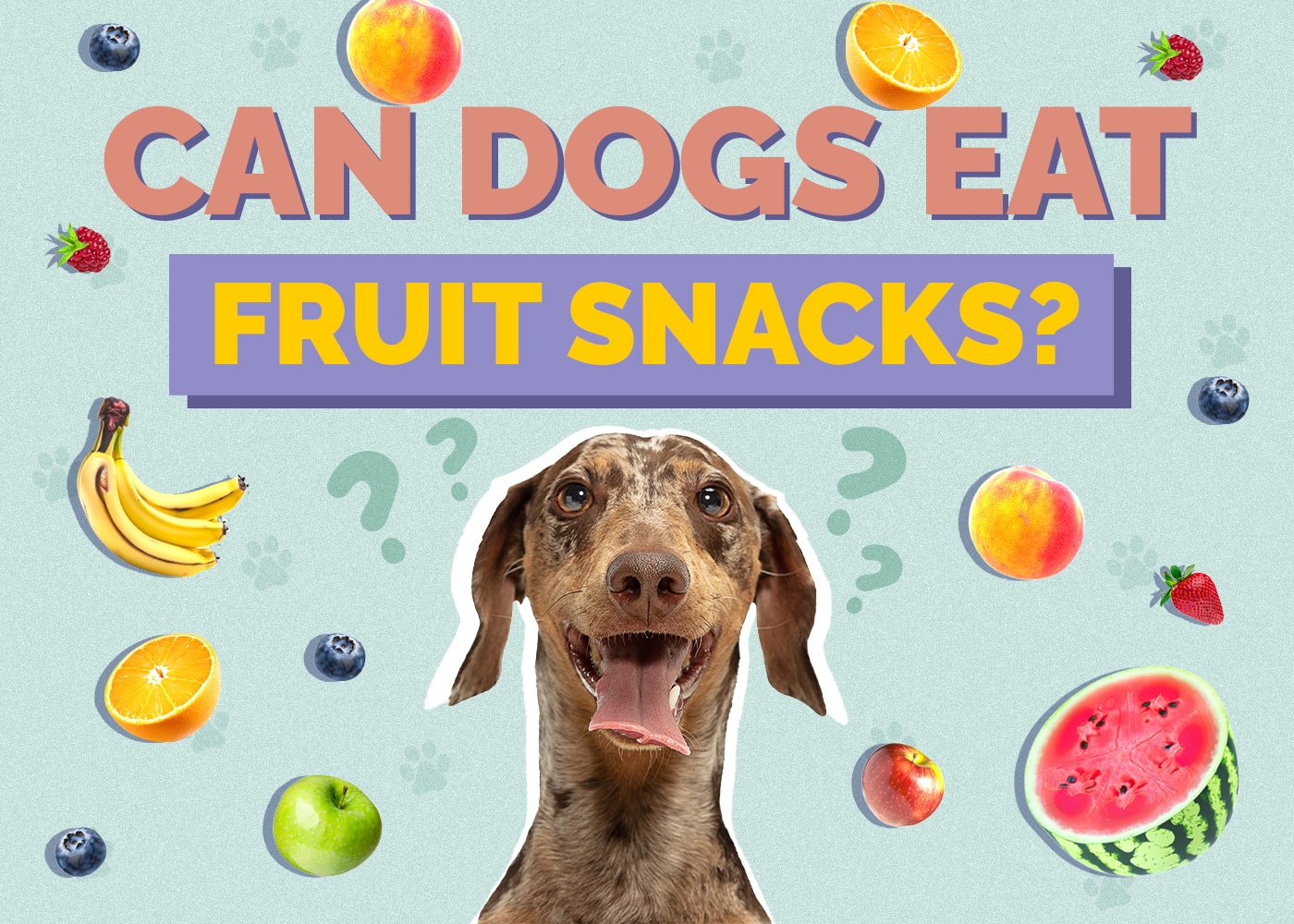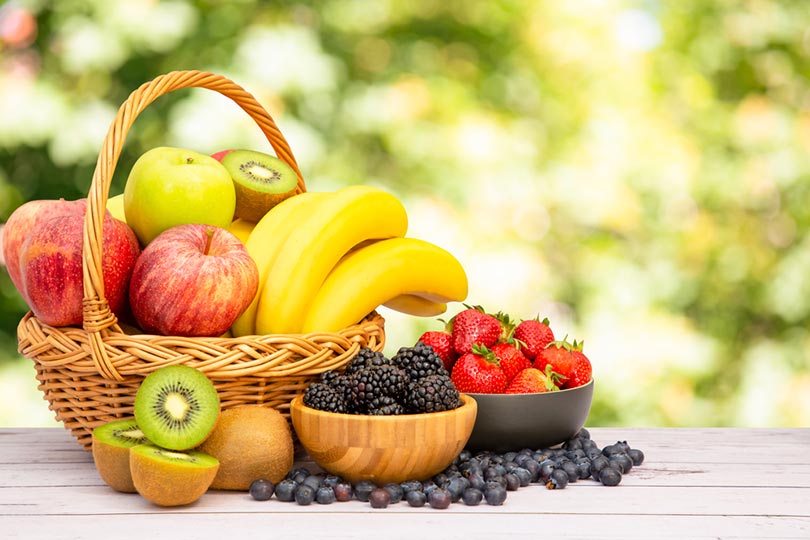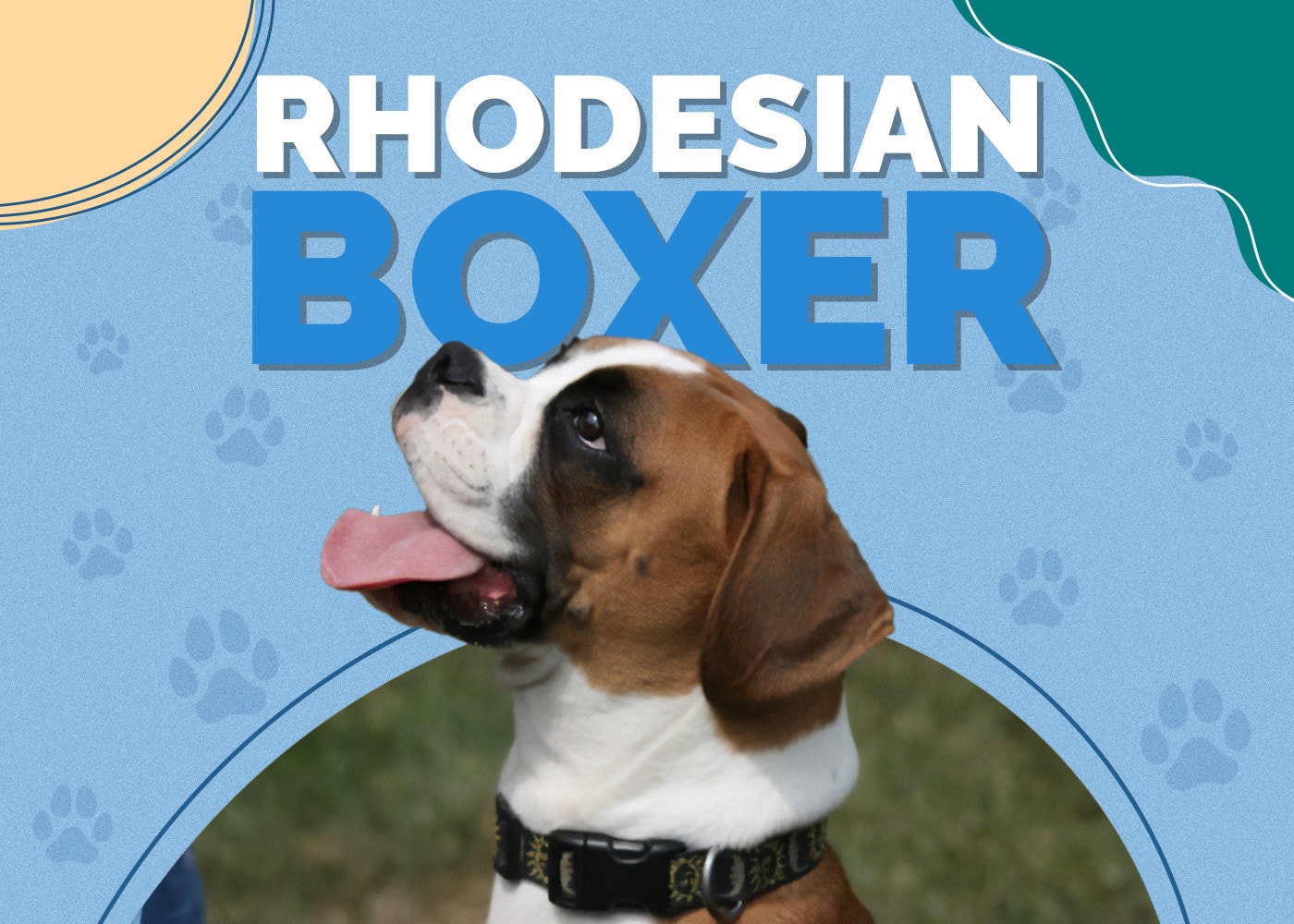Can Dogs Eat Fruit Snacks? Vet Reviewed Facts You Need to Know!

Updated on

Fruit Snacks are a popular candy choice, often coming in the form of a gummy with a fruit flavor. They are a fun treat for adults and kids alike. They come in a variety of flavors, feel “healthier” than candy, and even contain some vitamins. But should you share them with your dog? Are Fruit Snacks healthy for a dog?
Dogs shouldn’t be given Fruit Snacks. All flavors of Fruit Snacks contain grapes, which are TOXIC for dogs. In addition, their high sugar content isn’t healthy for your pup. Curious to learn more? Read on!
 Why Are Fruit Snacks Bad for Dogs?
Why Are Fruit Snacks Bad for Dogs?
Fruit Snacks are marketed as a healthier alternative to chocolate or sugar-laden treats, with fruit being the top ingredient for all 10 flavors of the product. However, their relatively high sugar content isn’t good for dogs.1 It isn’t toxic but could be unhealthy in large amounts.
Eating a lot of sugar over time can contribute to a variety of health issues in dogs, including metabolic changes, upset stomach, diabetes, and obesity. Chronic conditions like these can affect your dog’s quality of life and longevity, as well as lead to other health problems.
In some cases, it can cause pancreatitis, a life-threatening inflammatory reaction in the pancreas that leads to abdominal pain, inappetence, and vomiting. This occurs when the pancreas is activated inappropriately, causing it to digest itself.
All products in the Fruit Snacks line contain fruit puree as their top ingredient. In all their products, this puree includes grapes. Grapes are toxic for dogs, which means that Fruit Snacks should not be given to your dog.2
The signs of grape toxicity vary in dogs because it always depends on how many grapes have been ingested in comparison to the weight of the dog. For example, a Teacup Poodle that ingests a whole bag of Fruit Snacks will likely show more signs of an adverse reaction than a Great Dane that consumes those same snacks.
The most obvious sign of grape toxicity is vomiting or diarrhea within 6 to 12 hours of eating grapes. In addition, other signs include the following:
Left untreated, your dog might succumb to renal failure. Therefore, it is IMPERATIVE that you rush your dog to the vet if you ever think they’ve ingested grapes or raisins.
Can Dogs Eat Fruit?

Fruit Snacks contain grapes, which aren’t safe for your dog, but other natural and unprocessed fruit can be a healthy treat for your dog. Some of the best fruit treats for dogs include apples, bananas, blueberries, cantaloupe, cranberries, honeydew, peaches, pears, and watermelon.
Though these fruits are generally safe, it’s important to remove any stems, seeds, pits, or rind, which can be dangerous. For example, apple seeds contain trace amounts of cyanide, and the rind of melons can cause an intestinal blockage.
All fruits contain naturally occurring sugar, which is fine in moderation. Avoid feeding excess fruit to your dog, however, which can lead to similar problems as any other sugary snack.
 Conclusion
Conclusion
It’s tempting to share Fruit Snacks with your dog, but the presence of grapes in them, coupled with their high sugar content, means you should avoid feeding them to your dog. If you ever suspect that your dog might have ingested grapes, your priority should be to get them to a veterinarian as soon as possible to make sure they are okay.
There are other fruits that can be given to your dog as an occasional snack or treat, which we’ve listed. Remember that if you have any doubts about what’s safe for your dog, always ask your vet.
See Also:
- Can Dogs Eat Star Fruit?
- Can Dogs Eat Kumquats? Vet Reviewed Facts & FAQ
- Can Dogs Eat Jujube? Vet Approved Nutritiional Facts & FAQ
Featured Photo Credit: Alexandra Lande, Shutterstock

 Why Are Fruit Snacks Bad for Dogs?
Why Are Fruit Snacks Bad for Dogs?








